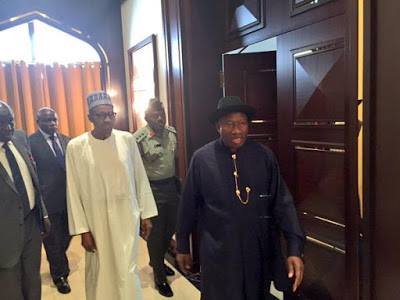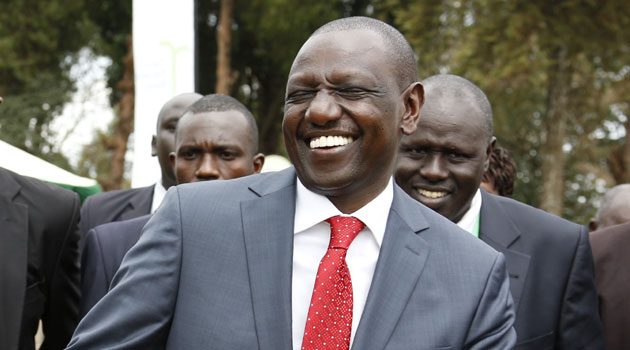ABUJA, Nigeria, May 28 – Nigeria’s outgoing President Goodluck Jonathan on Thursday showed Muhammadu Buhari around his new quarters, as the former military ruler prepared to take over as elected head of state.
The 57-year-old took Buhari and his vice-president-elect Yemi Osinbajo on a tour of the presidential villa, Aso Rock, in Abuja, before submitting his formal handover notes.
Buhari, 72, defeated Jonathan in March 28 elections — the first time in Nigeria’s history that an opposition candidate had beaten a sitting president.
He takes over as head of Africa’s most populous nation, top economy and leading oil producer as it limps back to normality after fuel shortages that brought the country to a near standstill.
Buhari’s All Progressives Congress (APC) accused Jonathan’s Peoples Democratic Party (PDP) of orchestrating the fuel crisis to scupper the transition.
NAIROBI, Kenya, May 28 – President Uhuru Kenyatta will not be travelling to Nigeria for the swearing-in of Muhammadu Buhari as Head of State following media reports that he would be accompanied by a delegation of over 80 civil servants.
Foreign Affairs Principal Secretary Karanja Kibicho however denied the reports describing the list of civil servants making the rounds as fake.
“Just look at those names. Does Chinedu Odii sound Kenyan to you? How about Lawal Tiyamiu? Let me ask you an easier one, how about Happiness Ikanyon?” Kibicho defended.
He however declined to state what the correct position was and joining the choir, accused the Kenyan media of being unpatriotic.
“Even if it were true that the President were travelling with that many people, why would the media publish the names of those in his security detail. I’m the PS in the Ministry of Foreign Affairs and even I don’t know who will be in Obama’s delegation. Is the safety of our president any less important?” he posed.
Deputy President William Ruto will now represent the Kenyan government at Buhari’s swearing-in ceremony, taking with him a maximum delegation of 10 people according to sources.
Given Kenya’s view of the West African nation as the new frontier, it was seen as a high priority trip for President Kenyatta to make; having received the outgoing Nigerian president Jonathan Goodluck with a 21-gun-salute when he visited Kenya in September 2013.
The Opposition had already taken the Executive to task over the reports of the President taking a bloated delegation with him to Nigeria with Deputy Minority Leader in the National Assembly Jakoyo Midiwo calling on President Kenyatta at Thursday’s National Prayer Breakfast to take corrective action.
On a day which President Kenyatta called on political leaders not to preach water and drink wine, Midiwo argued that the national government would have come off as hypocritical had the size of the delegation not been cut down.
“If I say that it is wrong for my Governor to budget Sh12 million on tea, it is also wrong for the President to burn fuel on Air Force One to Nigeria with 84 people. Those are civil servants who should really be working, not wasting tax payer money,” he opined.
The national government has in the past come down hard on county governments for not prudently managing public resources by going for trips abroad in unnecessarily large groups of what could be described as joy riders
As part of preparations for a hitch-free presidential inauguration on Friday, May 29, 2015, the Inspector-General of Police, IGP Solomon Arase, has ordered tight security at Eagle Square, hotels, key and vulnerable places within the Federal Capital Territory (FCT).
He has as well ordered the mounting of Tactical Operation Points on all roads leading to and out of the FCT.
Arase has also ordered the diversion of traffic on all roads around Eagle Square.
The Nigeria Police Force apologized for the inconveniences the arrangements might cause motorists and members of the public.






